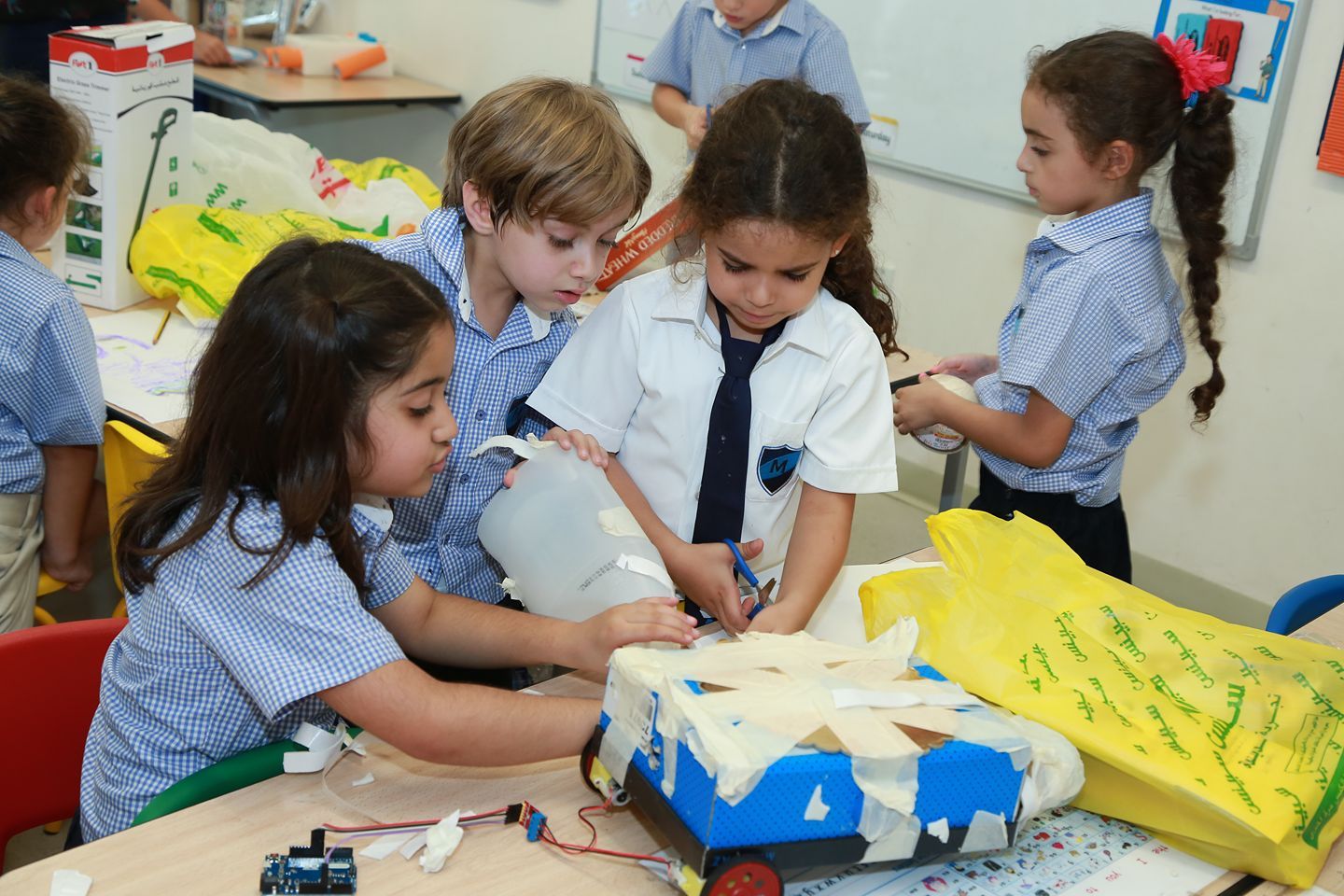From rubbish to robot

When Abdus Samad was a child, he would prise open electrical items at home to see the components inside and then put them back together. It was this sense of curiosity that he and his co-founders hoped to encourage and leverage when launching Junkbot, a do-it-yourself (DIY) robot kit.
Using recycled materials like cardboard boxes or water bottles, users can build their own robots with the core electrical components that come in the toolkit.
“It is an educational tool and requires that children have that curiosity,” says Samad, chief financial officer and one of the founders of Junkbot. “We need to empower them and provide that medium to explore things.”
Launched in the UAE in 2015, after completing Turn 8’s incubator programme and securing a $30,000 investment from DP World and a further $30,000 from the government of Chile, Junkbot now caters to more than 300 schools in the country with plans to expand to the wider GCC region.
“Our vision is to have an inventor in every home. We believe there is innovation in every child, they just need to be facilitated,” says Samad. “We need to empower every student out there to understand the next-generation technologies.”
The need for STEM
According to a report by the Commonwealth Scientific and Industrial Research Organisation (CSIRO), 75 per cent of the jobs in the future will require skills and knowledge in the science, technology, engineering and mathematics (STEM) fields. But 80 per cent of university graduates feel unprepared for the jobs of the future.
Samad believes the tools like Junkbot can help schoolchildren and university students acquire the skills of problem solving, critical thinking, prototyping as well as the technical know-how that the labour market so desperately requires.
Once a Junkbot is assembled, instructions and programing is offered online. Using Scratch, the programing software designed by MIT for schoolchildren, users can simply drag and drop commands to the robot, which can then be controlled by a mobile phone app or connected to the wifi network and used like an internet of things (IoT) device.
Each kit can have up to 120 different use-cases, enabling children to be creative and imaginative while providing them with the building blocks of IT skills, robotics and artificial intelligence (AI). According to Samad, exposing children to robotics at a young age will encourage them to study STEM subjects and experiment with new ideas.
The company is now launching a retail-focused kit with a carboard robot shell and wheels provided to position it as a toy and reach a wider audience.
Starting young
Several governments across the Middle East have prioritised technology education in a bid to diversify their economies. The One Million Arab Coders initiative has gained high traction across the region while Saudi Arabia’s education ministry is aiming to offer specialisations in robotics, AI and cyber security across 30 universities in the country.
Worldwide, more governments are encouraging students to study STEM subjects at a younger age. This has created a boom in education technologies (EdTech) and ‘infotainment’. The wildly popular Raspberry Pi, a credit card-sized, low cost computer launched in the UK in 2012 to teach children the basics of programing, has sold more than 19 million units to date.
Meanwhile littleBits a US-based education startup which provides electronic building-blocks for children to create their own ‘inventions’ was launched in 2011 by Lebanese-Canadian Ayah Bdeir and is now available in 70 countries across the world.
The aim for all is to target children at a young age to empower them with the right skills.
“It requires the user to think, it is a way to build smart. If you can build a light, you can build a solar-powered city,” says Samad.


